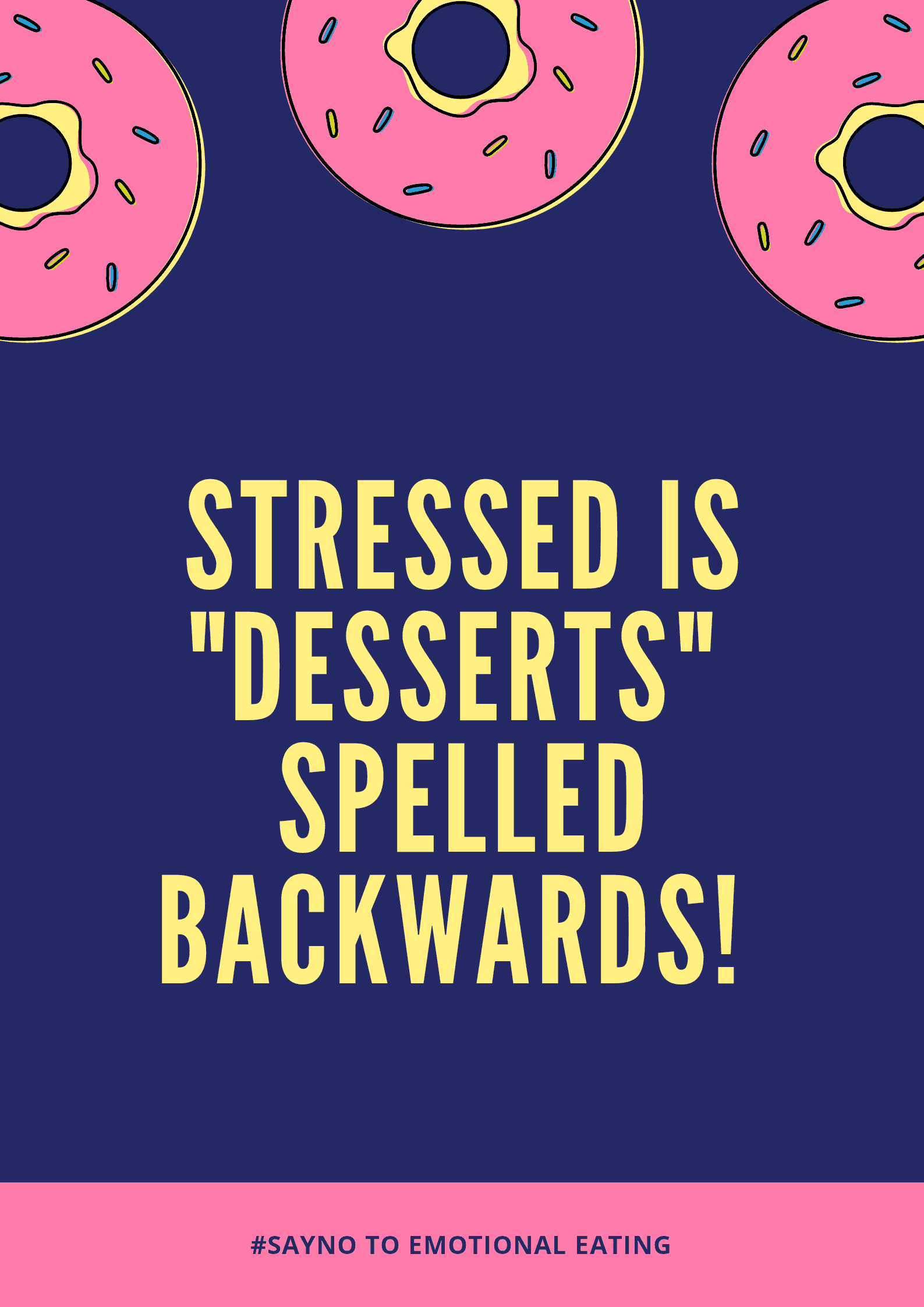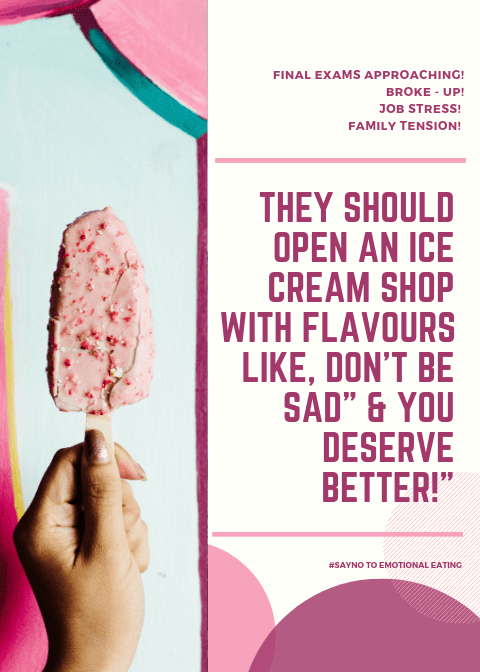
Just went through a bad breakup.
My job sucks right now.
Tomorrow is my final exam.
My family is full of circus.
A solution to all: Bring Me Some Food!!
What is the connection between eating and stress? Why some people engage in binge eating to reduce stress levels? Do they really feel better after eating? Or it’s a never-ending circle of stress and eating? If all this sounds relatable to you, and all of these questions are revolving in your mind, you’ve landed in the right place. Let’s get to know stress eating disorder or emotional eating better.
Symptoms observed:
- Eat more food than you normally would.
- No control over how much you eat.
- Feeling low and upset even after engaging in stress eating.
- Have a binge eating episode at least once a week for 3 months, on average.
- Eating until uncomfortably full.
- Even when you’re not physiologically hungry, you eat a lot.
- Eating alone so no one will see how much food you’re having.
- Feeling guilty, disgusted, or depressed about your eating.
Warning signs:
Behavioral signs include eating in secret, buying lots of extra food, hiding food packaging and Social withdrawal and isolation
Psychological signs include some feelings at first of comfort, relief and escape when eating, depression, anxiety, guilt and shame, worry, feeling fed up etc.
Physical signs include stomach pains, bloating, feeling sick, trouble sleeping and tiredness, weight gain, etc. People with binge eating disorder don’t try to throw up after overeating. You can get other health problems related to gaining weight or unhealthy eating, too, such as diabetes, high blood pressure or heart disease. You also may have trouble sleeping, muscle and joint pain and digestive problems. Women may have irregular or infrequent menstrual periods.

Research on Statistics of people involved in stress eating:
During 2014, Beat carried out a national survey into emotional overeating. The aim of the survey was to learn more about how people were affected by emotional overeating, in order to gain a deeper insight of the issue. A total of 1017 participants of the survey were over 18 years, who binge eat, compulsively overeat, feel they have emotional eating issues and are obese or struggling with their weight.
Results
85% of respondents said they have a negative body image of themselves.
79% felt pressure from society to lose weight.
Only 21% asked about their emotional health.
91% of respondents said they would like peer support, either in person or online or counselling to help them with their stress eating.
I think it’s time to realise the threat of stress eating disorder and getting to know the connection between stress and urge to overeat. There are effective treatments for this concern which have shown promising results. It’s time to respect our body, have some self-appreciation ad restrict from emotional eating.
Next article: Stress & Eating relationship and treatments.

